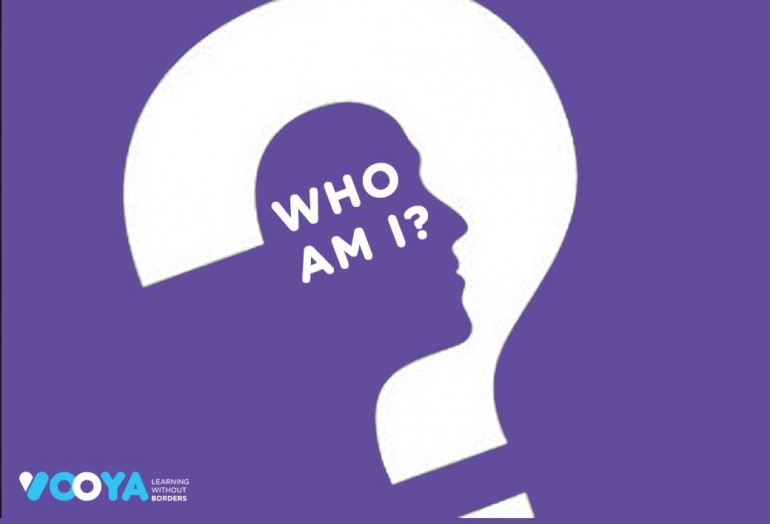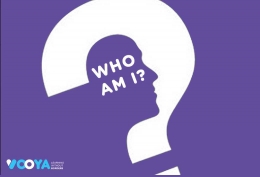To begin with, identity is a very complex term, and the search of it is also involving a long process. It is not in a clap of hands or a week of sleepless nights that one can find one's true self.
Talking about identity, Merriam-Webster dictionary defines this term as "the distinguishing character or personality of an individual". (Merriam-Webster.com, 2017) It is important to remember that a person's identity should be different with the others. Like Lady Gaga has taught us, we are born our ways.
However, for some people, it is difficult to find identities that are of their own, meaning are uniquely contrasting with others. The reasons are twofold. First, some others are caught in between shadows of other people's identities; be it their loved ones (parents, significant others, best friends) or even peers whom they envy. Therefore, the consequence is that they finally mimic the persona of those persons that they like instead of trying to find their own characters.
Second, there is this standard built by the society of good and bad traits which lead to a judgement of which characteristics make a normal human being as opposed to the abnormal ones. Remember, almost all protagonists in a young adult TV series or movies , like Mean Girls, Princess Diaries, or a Diary of a Whimpy Kid, all have characters which are different from most of their peers. Being different, they are bullied by their friends, and this kind of standard from the society is what making individuals, mostly teenagers, are reluctant to go deeper into their hearts and minds and say, "Who am I? Who is my true self?".
Human beings live in this universe walk along the three five stages, which are infancy, childhood, adolescence, adulthood, and old age. Among all of these phases of life, the important period of identity discovery is during adolescence. According to a professor of psychology, Les Parrot, Ph. D., there exists five symptoms of teenagers' struggle in the effort of finding identity. (Bellows, 2016) They show their struggles in relation to status symbols, forbidden behaviors, rebellion, cliquish exclusion, and idols.
In the process of creating a wholesome identity, teenagers will try to increase their status symbols. The ways are different from one to another, but the main goal is to gain respect from adults, more importantly their parents. For example, they will dress properly when going to events like wearing buttoned up shirts or formal dresses.
Most commonly, adolescence will also perform forbidden behaviors and a hint of rebellion. Again, they want to show associations with adulthood, so they will probably get interested in activities that are not allowed by their parents yet to do, such as smoking, drinking, and sexual stuffs. Moreover, these behaviors also mark themselves to be rebels, so that they are already separated from the parents who act as their authority figures and being totally independent.
The last two things that signify teenagers' development of identity are cliquish exclusion and idols. Teens have their own cliques, and they will push away their mates who are not like them. This is because they have their own perceived attractive traits that they will adopt, but this certainly does not mean that these attractive traits make their true identity.
Aside from mimicking the ones that are close to them, teens will also copy their idols. They like their idols, they identify with them, and they want to be them.
Meanwhile, identity crisis refers to "personal psychosocial conflict especially in adolescence that involves confusion about one's social role and often a sense of loss of continuity to one's personality". (Merriam-Webster.com, 2017) To simplify, it is when a person is doubting herself, and it could lead to problems later in life. To prevent this from happening, parents' supervision in form of suggestions rather than commands are highly needed by teenagers.
Nevertheless, among all of the signs shown above, this idol-related behavior could lead to greatness if not identity discovery. More often than not, teenagers look up to the people who are successful in their own lives carrying their own career paths.









